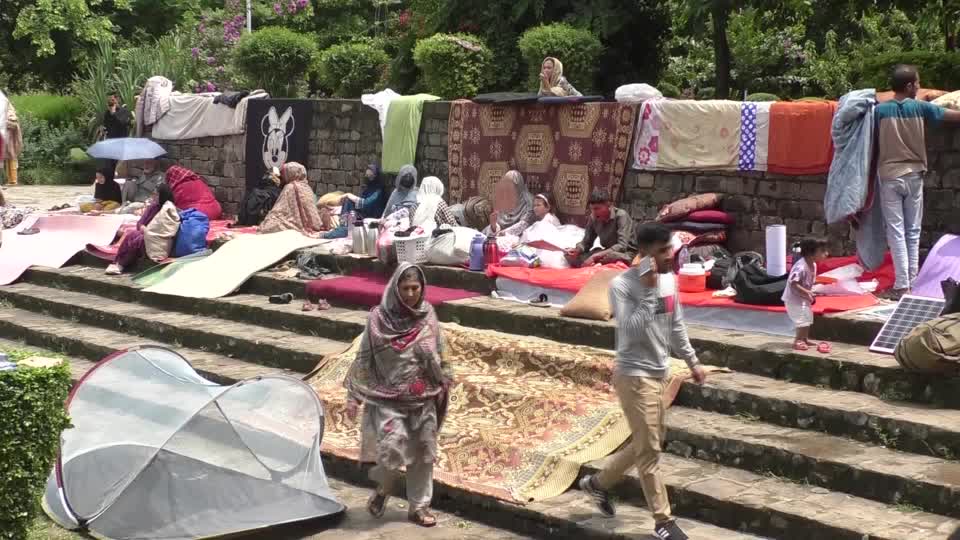STORY: Huddled in a park in Islamabad, these Afghan refugees say they have nowhere to go.
That’s as Pakistan pressures landlords to expel documented families.
Two hundred families now cook, sleep and dry their belongings in the park following nights of rain.
Among them is 26-year-old Samia.
She is from Afghanistan’s Hazara minority – a Shi’ite community long-persecuted back at home – and gave birth just three weeks ago.
“I came here when my baby was seven days old, and now it has been 22 days. There are many problems. At night there is rain and cold and during the day there is sun and heat. We have no food and my baby was sick but there was no doctor. He was coughing. I am also sick. I had surgery and I have stomach pain. These are the problems I am facing.”
Pakistan has hosted millions of refugees since the 1979 Soviet invasion of Afghanistan.
But it has stepped up expulsions under a 2023 crackdown – blaming Afghans for crime and militancy.
Those allegations are rejected by Kabul.
The United Nations says Pakistan has begun deporting documented Afghans before a September 1 deadline that could force more than a million to leave.
That’s despite about 1.3 million holding refugee registration documents.
750,000 of them have Afghan identity cards issued in Pakistan.
Many at the camp said they cannot go back to Afghanistan.
One of the park’s residents, a former advisor to Afghanistan’s interior ministry, said he feared reprisals for serving in the previous government and that “there is a risk of being killed”.
Dozens of police officers could be seen standing at the edge of the park.
Refugees said officers regularly told them to leave or risk being taken away.
Police denied harassment.
:: File
Nearly 700,000 Afghans have also been expelled from Iran since June, according to the UN, in what aid groups said is the biggest Afghan refugee return crisis since the Taliban takeover in 2021.
